by Drew Lindqvist, BV Volunteer, Madagascar
I don’t know how to begin concerning a description of Andavadoaka, let alone Madagascar, except to say that it’s the most remarkable corner of the earth I’ve ever been invited to discover. It may be best to add colour to life here as a Blue Ventures volunteer by simply describing my yesterday, which was technically our day off from science and diving…
I awoke at dawn to the cowbell clank of the church bells. Through the mosquito net, out of both windows, I see the purple-pink ocean. I slowly gain focus on the passing pirogues with their patchwork sails, sleepily fanning out for a day of fishing, as my mind recollects the night’s vivid malaria-pill dreams. As I give my teeth a salt water brush, our hut’s resident gecko chirps a kind of ‘Good morning, I’ve moved over here now, aren’t I clever?’ chirp. The Vezo say that when the gecko’s chirp, whatever you’re thinking in that moment comes true… (I’ve yet to see evidence of this).
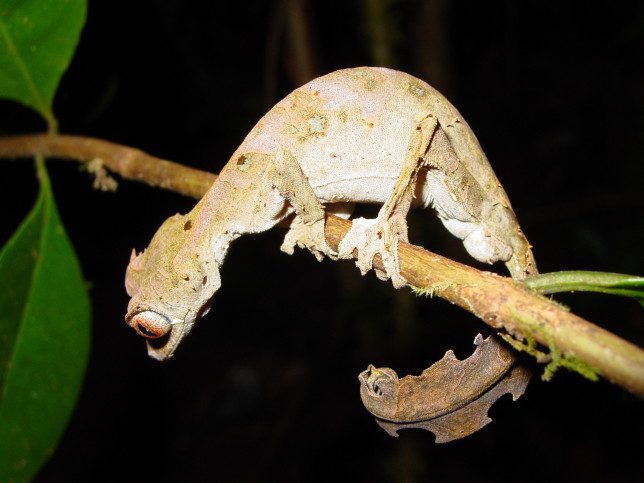
My morning wake up call
I put some bananas and a jar of peanut butter made by a girl in the village in a back pack and my roommate, Andy, and I step out of our hut and onto the sand at the same time as Kim, another volunteer in the neighbouring hut of a string of 5 on the beach. We meet Jacks, an animated Vezo, and Blue Ventures employee, nicknamed for his love of Michael Jackson and all-knowing guide in everything Malagasy, and walk through the already awake and bustling village. Many of the brightly dressed women are cooking on large fires while the younger girls bring water from the well in huge drums, skilfully balanced on their heads (a skill we cannot attain, though we’ll keep trying). Most of the men are out fishing. We shuffle through intense smells of smoke, goat, baking, fish, earth and sea salt, and Jacks, looking frustrated, runs into the nearby dry forest. One of the Zebu’s enlisted to pull our cart has wandered deep into the scrub in search of food, and it takes 30 minutes to wrestle him back.
We bounce around in the back of the colourful wooden cart passing many Baobabs, weighing heavy and ancient on the horizon. Their Malagasy name, ‘renala’, means ‘forest mother’ and gazing at the matriarchal monoliths this seems entirely accurate. I was able to safely climb one of the larger ones a week ago and found the top to be an enticingly vast and liveable space.
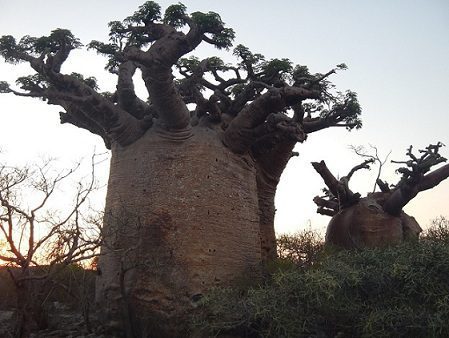
Baobabs are the iconic tree of Madagascar
We reach our destination, a huge salt lake fringed by the spiny forest plants and plump Euphorbia trees. Standing statuesque and proud in the middle of the lake, a flamboyance of 50 odd flamingos, this is the lure for our early journey. We remove our shoes and sneak through the muddy lake, attempting to steal a closer look without disturbing their one-legged stance and calm air of self-satisfaction. With a ‘squephonk’ we cross a threshold and our legs are sucked thigh deep into the unctuous grey mud. A stifled a laugh. When we lift our gaze, the flamingos, with only the uniform wooden-cane turn of the head, have transformed their placid air to that of stationary Russian ballerinas in the electric moment between the curtains rise and their first movement. Sensing the broken spell, we throw our hands in the air and slop towards them hollering and flailing to ensure a dramatic lift off, and what a sight it was.
They rupture their porcelain composure with a shambled chorus of loud honking and rose into the air, revealing their bright pink underwings. The full blush circle us three times before landing in an ever so slightly different patch of lake. A striking display.
We picnic under a tree away from the dirt road. Jacks brought hot coffee and boko boko (a favourite kind of sweet bread which has become the mascot food of the trip) for breakfast, served in the traditional way; with an aching amount of sugar.
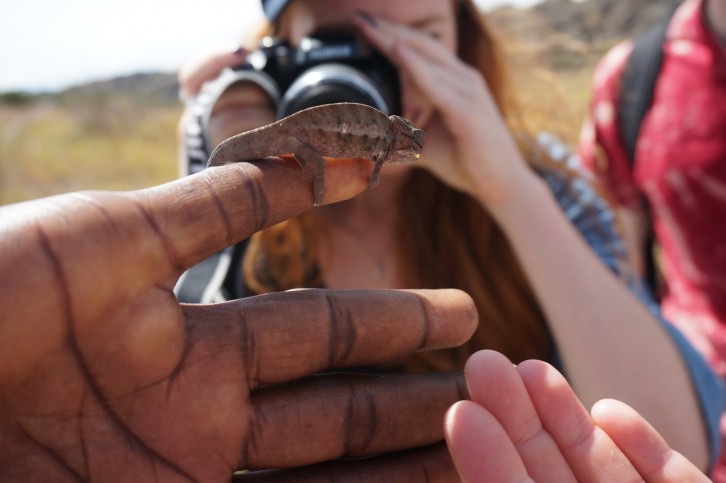
Finding a teeny chameleon on our walk was a bonus
Once home, we spend some time listening to Rod Stewart and leisurely washing underwear in a bucket on our ocean fronting porch. We string them up to the effect of colourful Tibetan prayer flags and sweep the bull ants out of the bathroom before a Benthic-study hammock session. A piece of advice to future volunteers: Study your fish and benthic pre-expedition plane ride for maximum field time fun.
After an hour or so we all gather on our beloved half- moon beach as the sails of 3 pirogues rise over the cliffs. With 3 to a boat, we push the brightly coloured pirogues off the shore and jump in. I’m designated counterbalance, so I stand out on an extended beam over the water and occasionally give a rope or two a good tug, while the Vezo lads dash about expertly tying knots. We’ve been given lessons on how to sail a pirogue, but none of us are nearly proficient enough to keep up…Yet.
We pull onto Nosy Fasy; a sandbar island shaped like a quotation mark and roughly the size of an Olympic pool. One of the pirogue sails is laid out like a blanket and we eat our packed egg rolls and watch the near shore fishermen before diving in for a snorkel. There’s an abundance of Angelfish and Butterfly fish, we see a Moray and most notably; a few strikingly pattered Picasso triggerfish. I stay out duck diving until, lightheaded, I stagger onto land in a drunken kind of happy stupor. The incoming tide has lassoed and shrunk the quotation mark so that it almost resembles the white whale, Moby Dick, breaching off the coast with a palaver of sun-soaked tourists on his nose. The sails are back in place, catching the wind and eager to spring away as if having to endure land for such a time.
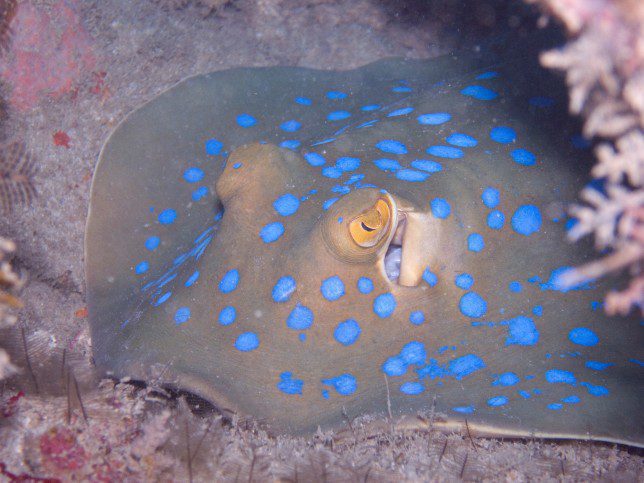
A bluespotted ribbon ray – welcome find on our snorkel
Sailing away, we watch as the impassive sea gulps up the island. Within minutes Nosy Fasy or ‘Rod Stewart Island’ is completely expunged by the rising tide and with its disappearance so too did our memories of it become hazy and dreamlike. The wind picks up and by the time we reached home base beach we’re all soaked through once more.
I then gather some equipment and climb the hill next to our classroom to record weather data for the day. It’s late afternoon and the hill is already occupied by a heard of marbled goats that usually sweep over our camp before sunset. Kim, myself, and one of the volunteer medics, Jo, walk down into the village toward the school. A few days ago, while teaching at Saturday school, we were moved almost to tears by the song of a 10 yr old Malagasy boy on a home-made Ukulele like box guitar. This kid was ridiculous, he writes his own music namely about environmental issues, but in Malagasy they sound to us like love songs, and his voice is pitch perfect. The three of us have set about teaching him the Hawaiian version of ‘Somewhere Over The Rainbow’, explaining the phrases as we go. He listened to the song twice, retuned his box shaped Uke, and picked up the chords almost effortlessly. We were heading to meet him and translate the third verse.
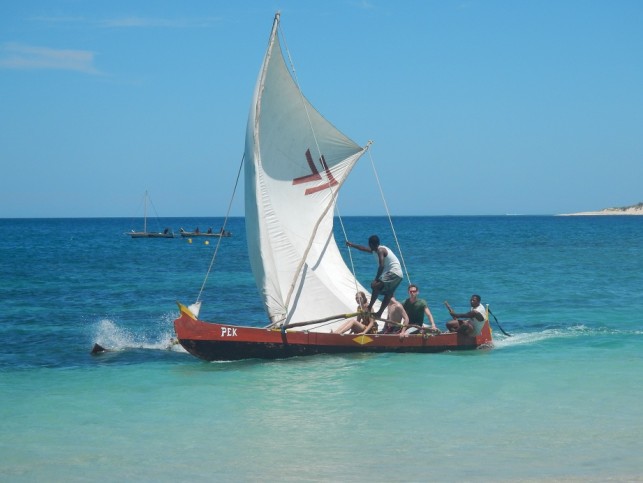
Sailing – the perfect way to spend an afternoon
After the lesson we accidentally wander through a few backyards, tripping over ducks and yelling ‘Azafady!’ (sorry/excuse me) as those working in the yards laugh at us. We find our way to the back entrance of the local bar/disco on the beach that sells a couple of brands of cold Malagasy beer, and it’s heaven. We take our usual table facing the sunset. The sunsets here are over the ocean and always breath-taking, particularly when we have some clouds to ignite, though this is rare. And then the stars… never in my life have I seen so many stars! The moon is almost full now, but when we first arrived we had the joy of sitting on the dunes and watching it set. The drunkards yellow grin would melt like hot wax on the horizon and lend the sky entirely to the stars. We bump into a couple of Nahoodas, who are the elders of the village. We’d presented ourselves to the Nahoodas in wobbly Malagasy the week before, then for reasons I’ve forgotten, danced like mad in front of them.
We all meet at 7.15pm at a long table down a sandy path lined with juvenile baobabs. All BV staff and associates sit for Vao Vao, which means news, and we discuss the day and plans for the next day until 7.30 when dinner is presented. What they lack in vegetables here they make up for in seafood. The freshest and most delicious seafood I’ve ever tasted. Tiana, the chef, is a genius.
After dinner and a few long conversations, exhausted, Hannah and I sit behind the bathroom in the sand and watch 30 odd hermit crabs gather to lick moisture off the wall. Some are the size of our hand with exquisite shells. Occasionally we’ll have a bonfire and hermit crab races next to the dunes, and every morning the hundreds of hermits that’ve passed by leave trails in the sand which look as though the tour de France have met for midnight drink on the dunes.
Mosquito spray, malaria pill, mosquito net, bed.
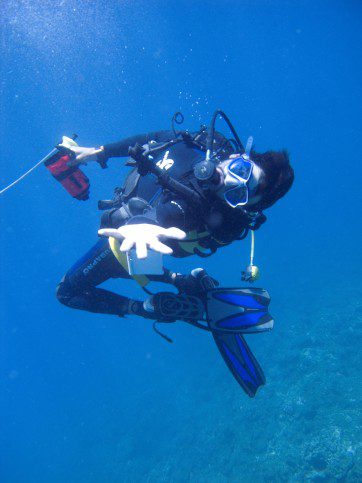
Goodbye from me!

